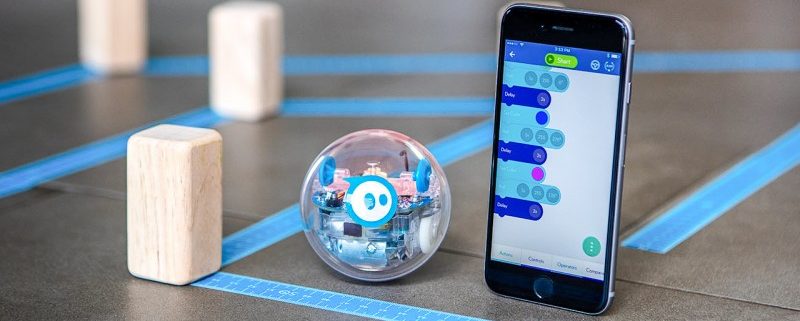Computer Science 101
Using Chromebooks, SPRK+ robots, and highly engaging lesson planning we guide students through ten 60-minute lessons that explore beginning and intermediate computer science concepts, including:
Why Computers?
The first three classes are designed to provide meaningful context surrounding computers.
We look into the usefulness of computers and why humans were compelled to invent them
History of Computer
How did we get here? Many computing devices have become so small and indispensable we forget they are even there. This class sheds light on how we arrived here with pocket sized super-computers
The Internet
What happens when all of these amazing devices begin to communicate with each other?
What is Information?
And what are the different types of information?
How does storage work?
We have been storing data for thousands of years…what happens when we use electrons to store this data? How is this possible?
How algorithms work?
We can store vast amounts of information but what is the “best” way to find what we are looking for?
Basics of Logic
If you can make it a Boolean, you can make it a circuit…
World of Languages, syntax introduction
What are the different programming languages used for? Can you write in this language?
Two lessons putting it all together to create their first code!
Students will complete a project of their choosing to demonstrate mastery of course content.
At the end of the course your child will have an opportunity to learn invaluable skills, such as how to collaborate, how to think logically and even get a certificate celebrating their very first code!
Kids!Can!></BUILD!> 101
The class will focus on the design process, teamwork, and execution.
Students will learn design concepts with a class set of Sphero SPRK+ robots.
Chromebook laptops and a wide range of building materials to allow for creative execution.
Why Design Thinking for children?
Learning to Fail-
The engineering design process removes the negativity surrounding failure and instead sees them as learning opportunities.
Future skills-
Design challenges will have kids thinking critically, creatively and communicating with each other.
Working in Teams-
The ability to work effectively on a goal oriented team will be crucial for career success in almost any field.
Working in teams also facilitates interpersonal skill development.
Availability
New courses beginning in January
Location
Based in Amsterdam
Classes currently being held at the International Primary Schools of Eindhoven, Haarlem, Almere and Amsterdam International Community School.
Available throughout The Netherlands
Ask your school Head or after schools director to reach out and bring Kids!Can! to your school!

